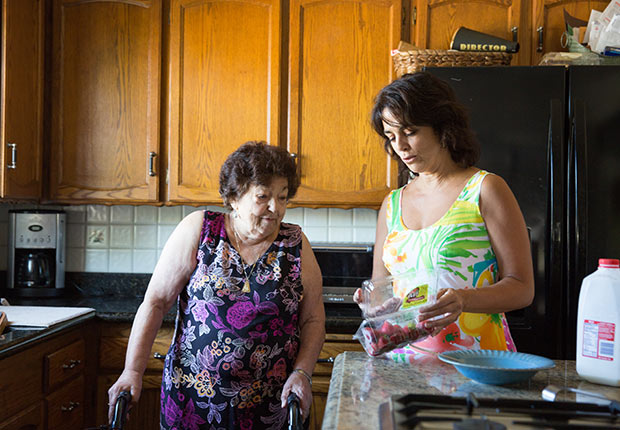AARP Hearing Center

Family caregivers in the U.S. spend an estimated 30 billion hours per year caring for older family and friends. That’s about $522 billion in care, according to a new Rand Corp. study, as measured by valuing the time caregivers have sacrificed in order to be able to provide care.
Replacing that care with unskilled paid care at minimum wage would cost $221 billion, while replacing it with skilled nursing care would cost $642 billion annually. An AARP study found nearly half of family caregivers are performing complex medical/nursing tasks, such as managing multiple medications, wound care, care coordination and using medical equipment — which points to a replacement cost in the higher end of that cost range.
“Our findings provide a new and better estimate of the monetary value of the care that millions of relatives and friends provide to the nation’s elderly,” said Amalavoyal V. Chari, the study’s lead author, a lecturer at the University of Sussex and a former researcher at Rand, a nonprofit research organization. “These numbers are huge and help put the enormity of this largely silent and unseen workforce into perspective.”
The study’s researchers estimated the “opportunity cost” of time spent by family caregivers by using wage estimates for working caregivers and estimating wages based on characteristics such as education, age and gender for nonworking caregivers. Three out of five caregivers under the age of 65 are working; they provide an estimated 22 billion of the 30 billion caregiving hours per year. Many working caregivers are forced to make adjustments in their work schedules and often lose wages (an average estimated lifetime loss of wages and Social Security of about $300,000, according to an earlier MetLife study). These working caregivers account for the majority of the estimated $522 billion cost of care (partially because their hourly wages were assigned a higher value than nonworking caregivers).
This study points to the growing cost of caring for our elders, as well as the high proportion of that care that family caregivers are providing — often at a high cost to them, both literally and figuratively. Continued development of flexible work policies for working caregivers, who are shouldering the majority of caregiving responsibilities, will be needed as boomers age and the need for eldercare grows.
Amy Goyer is AARP’s family, caregiving and multigenerational issues expert; she spends most of her time in Phoenix, where she is caregiving for her dad, who lives with her. She is the author of AARP’s Juggling Work and Caregiving. Follow Amy on Twitter @amygoyer and Facebook.































































